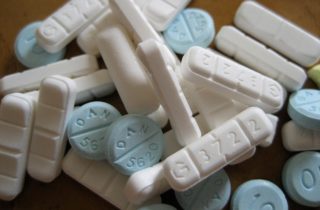Windward Way strives to offer the custom care while you detox off Xanax® (alprazolam). We know how uncomfortable (and dangerous) withdrawal from a benzodiazepine like Xanax potentially can be. However, our inpatient detox is a fully medically supervised facility to help smooth the transition into our primary program.
Xanax Detox


Xanax Detox
Xanax® Detox Center at Windward Way
Also, Windward Way is nothing like a “hospital” environment you might find with other low-quality detox centers. We’ve replaced the sterile, hospital-like setting with the comfortable décor you might even find in your own home. On top of that, you’ll have 24/7 care. It’s what makes our addiction treatment program your “hope away from home.”
When people discover they are addicted to Xanax, Windward Way is there to deliver the treatment they need. First, our intake experts will answer the questions you have and determine whether our prescription drug detox is appropriate for you. We want to keep you safe and comfortable when you come off this highly addictive prescription medication. Why suffer any longer—we’re here to take your call right now: (855) 491-7694.
Xanax is an extremely addictive benzodiazepine. Trying to come off it alone can lead to a potentially life-threatening withdrawal. However, Windward Way’s Xanax addiction rehab will begin with the detoxification regimen to get you the help you deserve to find long-lasting recovery from addiction.
It’s possible that other addiction types present themselves alongside a primary addiction. Since the friendly staff Windward Way are all experts when it comes to addiction and recovery, you’ll rest easy knowing that we’ll tackle all the issues you may need to address to stay sober. Call us now—you no longer have to constantly chase after your next Xanax dose. Help for you or people care about is readily available at: (855) 491-7694.
Xanax Detoxification Centers for Treatment of Withdrawal Symptoms
Taking the first step, accepting that you are in danger and seeking help can be difficult for many people that struggle with addiction. Whether they feel ashamed, fear that their community will judge them or think that they won’t be able to handle the detox process, a lot of people give themselves excuses for postponing treatment. However, learning about what to expect from a Xanax detox process and addiction treatment, as well as what are all the options that one can consider is the stepping stone. Whatever they decide, patients need access to accurate information and need to know that they have a solid support system that can help them get over this difficult time.
Patients must also keep in mind that detox is just a small part of the recovery process. The transition from active drug use to becoming and staying sober will be challenging, so they should consider a long-term approach.
What Are the Common Symptoms of Acute Withdrawal?
Xanax withdrawal symptoms are both physical and mental and include headaches, stomach aches, sweating, tremors, muscle pain and stiffness, nausea, vomiting, insomnia, anxiety, and panic attacks.
When Does the Withdrawal Pain Peak?
Withdrawal symptoms will usually kick in fast. The good news is that they also tend to fade out just as fast, at around five to seven days after the last dose. Patients can expect to experience the first symptoms within a few hours after the last dose. After a few days, they will reach the peak, after which symptoms will subside slowly until they completely fade away.
However, the withdrawal timeline may differ from person to person.
What Are the More Serious Side Effects of Detoxing from Xanax?
An unsupervised detox process can increase the risk of medical complications such as hallucinations, seizures or perception distortion. The chances of a relapse are also extremely high if the patient undergoes this process on their own.
A relapse can be extremely dangerous because, after a detox program, the patient’s tolerance to the drug has severely decreased. In other words, the body is no longer used to the same amount of the substance, and patients risk overdosing.
How Long Does It Take to Detoxify Fully?
Each patient will experience the detox process differently; thus the length of the recovery will also vary. Some of the factors that can have an impact on both the withdrawal symptoms and the period that will be necessary for patients to recover are:
- The reason why the drug was being taken in the first place, whether it was recreational or prescribed
- The dose that was being taken by the patient before interrupting it
- Whether or not the drug was combined with other drugs or with alcohol
- Any co-occurring disorders and their symptoms
- Whether or not the patient took the drug regularly or from time to time and in what dosages
- The patient’s metabolism, as well as their physical and mental state
Doctors consider all these factors before deciding the best line of action. That is why it’s crucial for patients to seek professional help and have a specialist to guide them.
How Can Medical Detox Help?
Xanax withdrawal can turn out to be a difficult process to endure for most people, so the best option is to undergo a medical treatment and a management program, under direct supervision from a professional medical staff. Complications include hallucinations, seizures, and distortions in perceptions, and can occur at any time which is why around the clock medical supervision is the safest option one can choose for detox.
Moreover, a medical detox is the best choice a patient can make because of increased relapse risks, which puts them in danger of overdosing. Also, a difficult family or work situation can make the patient struggle with anxiety or panic, which is why constant monitoring and access to therapy and group support can help people deal with the stress of undergoing addiction treatment as well.
For most people that struggle with Xanax addiction, even the thought of enrolling in a rehab facility can feel strange. After all, they’re not taking an illegal drug but what the doctor recommended. However, when the urge to take your pills intervenes with your day-to-day life, then it’s time to accept that you may have a problem and you may need to undergo a detox treatment.
Make sure that the facility you choose has the right resources, a professional medical team to supervise you, and a healthy support group that you can lean on when you need it the most.




